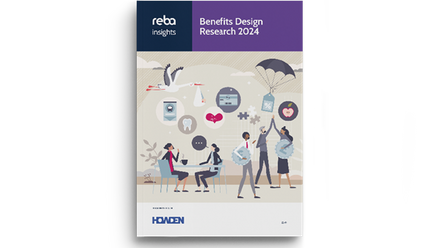Key considerations when reviewing your Group Income Protection policy

However, a Group Income Protection (GIP) policy can provide much more than just income. It provides support, in the form of early intervention and rehabilitation services, which can help prevent a claim being made in the first place. It gives employers access to a third party to assess the absent employee, removing those difficult conversations from the business, and can also help support that all important absence management programme.
Considerations when reviewing the design of your GIP scheme
Where it was once common that an employee may work for you for life, on average an employee now changes employers every five years. Therefore should the GIP payment period you offer adjust as a result?
Many companies continue to provide this benefit to pay a percentage of salary until state pension age, regardless of how old the employee is when they first become absent.
The government has also made significant changes to state disability benefits in recent years. Many schemes continue to operate state benefit offsets which should be reviewed in light of these changes. Employees may be unlikely to claim any benefits from the state. Moving to a flat rate benefit might be more appropriate. This will need some consideration as there may be an increase to your premium, however you could consider funding this by lowering the benefit percentage payable to take account of the removal of the offset.
What added value might you be missing out on?
GIP providers are increasingly offering added-value services. When you are reviewing your GIP scheme, it’s worth checking what other services your provider offers.
Absence management services
Increasingly, insurers focus on rehabilitation and more are offering early intervention services.
Early intervention services allow you to identify where an employee, who is still at work, may be struggling with a health problem. This help in the early days, of illness or injury, can help to prevent workplace absence.
By managing short-term issues, you can prevent them from becoming long-term health problems. This can also prevent performance and productivity from being impacted.
Vocational Rehabilitation Consultants are often provided which help the employee make a safe and sustainable return to work, and means the insurer is doing more than simply accepting new claims and reviewing on-going claims.
Types of support that can be provided include:
- practical ideas to aid recovery
- acting as an arbitrator between the employee and employer
- highlighting potential barriers
- suggesting possible adjustments to the employee’s workplace
- creating a phased return to work plan.
Employee Assistance Programmes (EAPs)
Many policies offer an EAP which includes expert advice, information and practical support on a range of issues, both work-related and personal. These may include health, financial matters, grief, relationships and some legal advice. It may offer counselling and even cognitive behavioural therapy. The levels of counselling each EAP offers varies and so it is important to compare providers, eg face-to-face or telephone support and numbers of sessions provided.
There is usually support for employers too, for example; advice for managers on mental health and managing cancer in the workplace. Some even offer free workshops on these topics.
The author is Tasha Fry, consultant at Johnson Fleming.
This article was provided by Johnson Fleming.
In partnership with Johnson Fleming
Through ongoing advice&support, we’ll help you achieve your business goals&legislative obligations.







